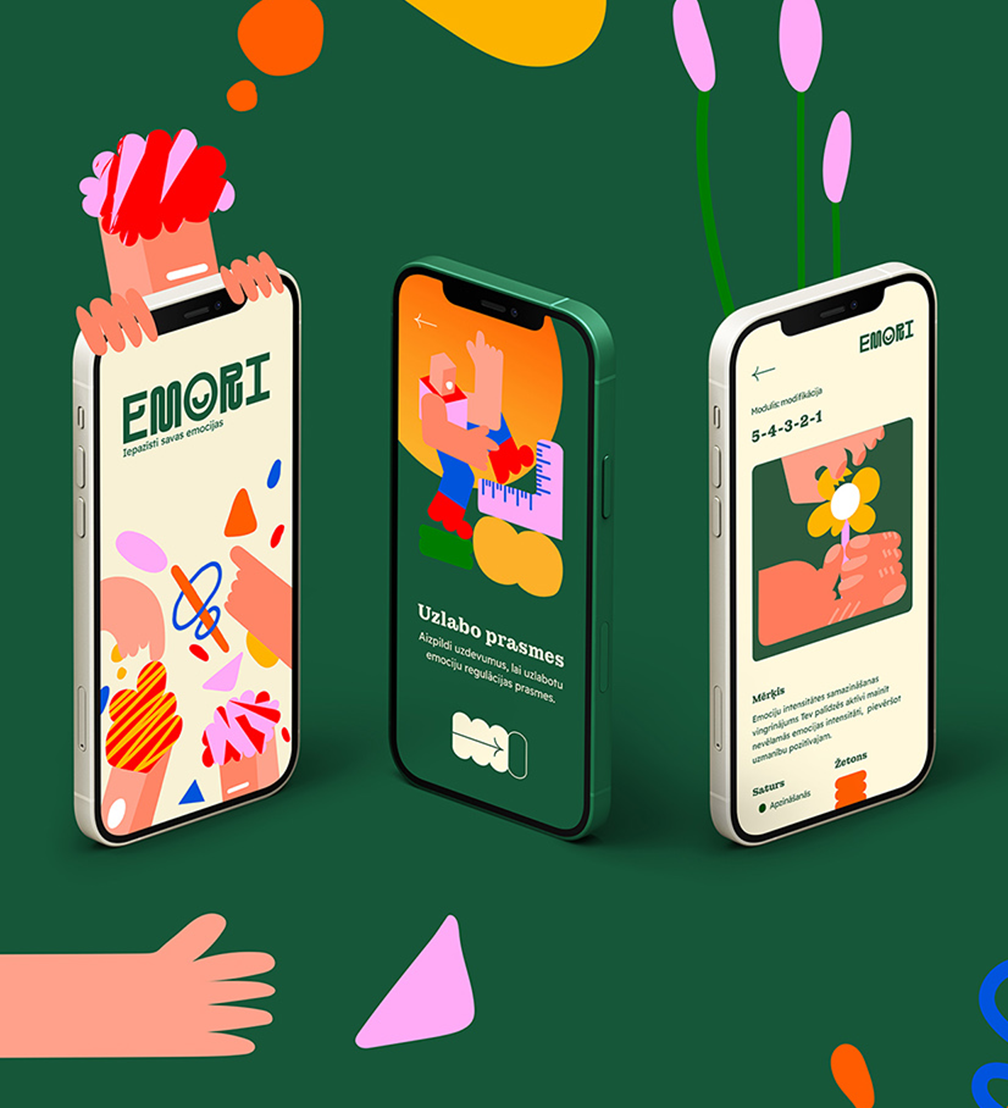
A prototype of the mobile self–help app Emori was created through the cooperation of students and teachers of the Art Academy of Latvia, Riga Stradiņš University, and Ventspils University College. The purpose of the app is to offer an accessible way to help people develop and improve their emotion regulation skills.
The Emori app lets its users evaluate and identify emotion management or regulation skills, which the user can improve with tasks based on psychological or artistic methods. With the mood monitor included in Emori, it is possible to learn to recognise emotions and name them. At the same time, the app can also serve as a research platform that allows to obtain and analyse data on the emotion regulation skills of its users.
According to research by students at the Riga Stradiņš University, some Latvians have difficulties with emotion regulation, such as a limited ability to be aware of, understand, and control unpleasant emotions. Considering the fact that a part of society does not have the opportunity to visit mental health professionals in person, the mobile app can offer financially and physically accessible help in developing emotional skills. However, the creators of Emori emphasise that the app does not replace the consultation of a professional therapist.
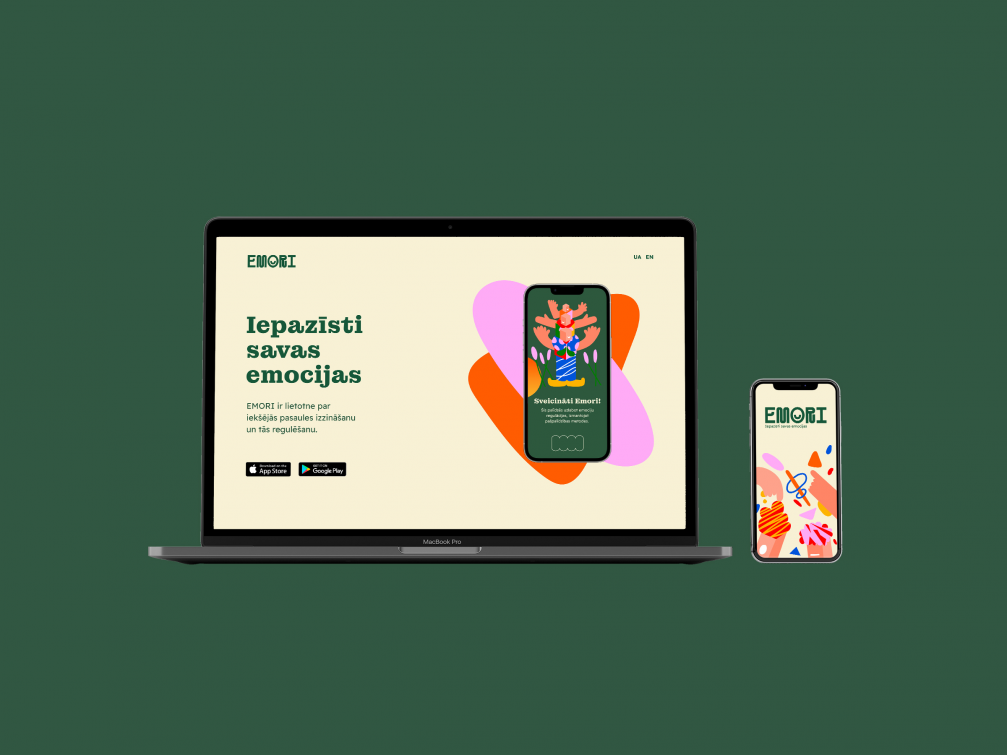
Three universities, their teaching staff and students cooperated in the project. The Art Academy of Latvia was represented by lecturers Liene Jākobsone, Barbara Ābele, Matīss Zvaigzne, and Markus Rožkalns, as well as Functional Design students Džūlija Ekuse, who created process and interactive design, Dārta Galiņa — UX/UI design, Ričards Znutiņš–Znutāns — illustrations and brand, Sandra Sugako — conducted content research and testing. Professor Kristīne Mārtinsone and lecturer Inese Paiča, as well as students of the Master’s study program Art Therapy Maruta Linuža and Inga Iejava worked in the Riga Stradiņš University team. Ventspils University College lecturer Karīna Šķirmante and programming student Jānis Vīksne also participated in the development of the app.
The content of the Emori app is clinically approved and empirically based. Healthcare professionals, as well as design practitioners and emerging professionals were involved in the creation of the content, and potential users were involved at every stage of the design development. The creators of Emori state that this is the first project of its kind in Latvia. Based on design research and methods, the scientific content has been transformed into an easy–to–understand, interactive, and friendly design, thus creating accessible psychological support for the widest possible range of people.
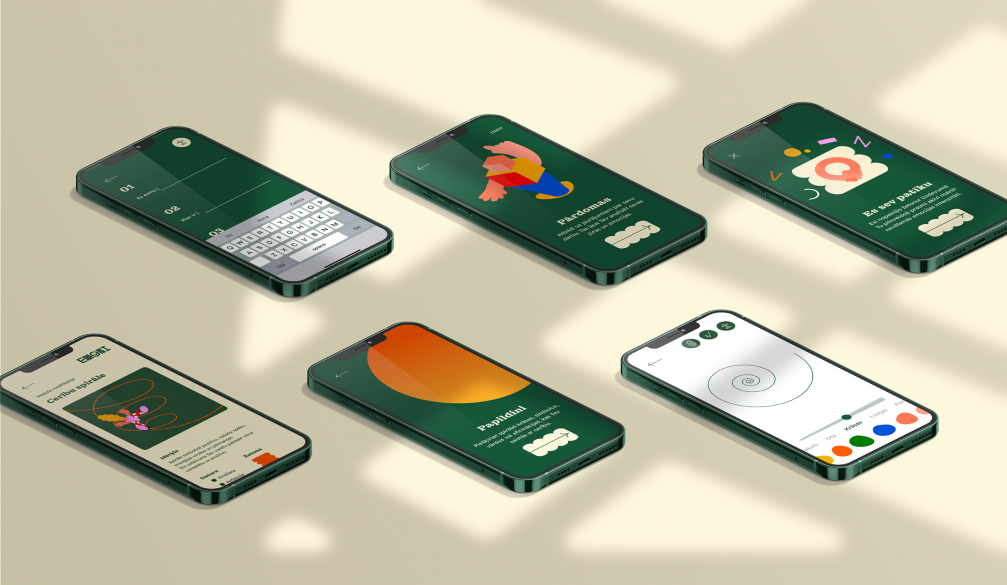
The information displayed in the app is arranged without overloading the user with several functions at the same time. The survey section uses game elements that help keep the attention of the user while answering. The practical tasks in the app are grouped by similar features, creating five different task templates, allowing to add more and more tasks later. In order to motivate the user to use Emori regularly, a motivation system was created, which allows collecting points and skill tokens, as well as collecting results and statistics.
The playful visual language of Emori represents the diversity of emotions. The illustrations created by Ričards Znutiņš–Znutāns use body language, colours and simple cutout–like shapes to evoke emotions in the user. Considering that human is at the centre of the app, its image is also included in the Emori logo.
Currently, Emori is in the prototype stage, and the creators of the app hope to find funding for its completion.
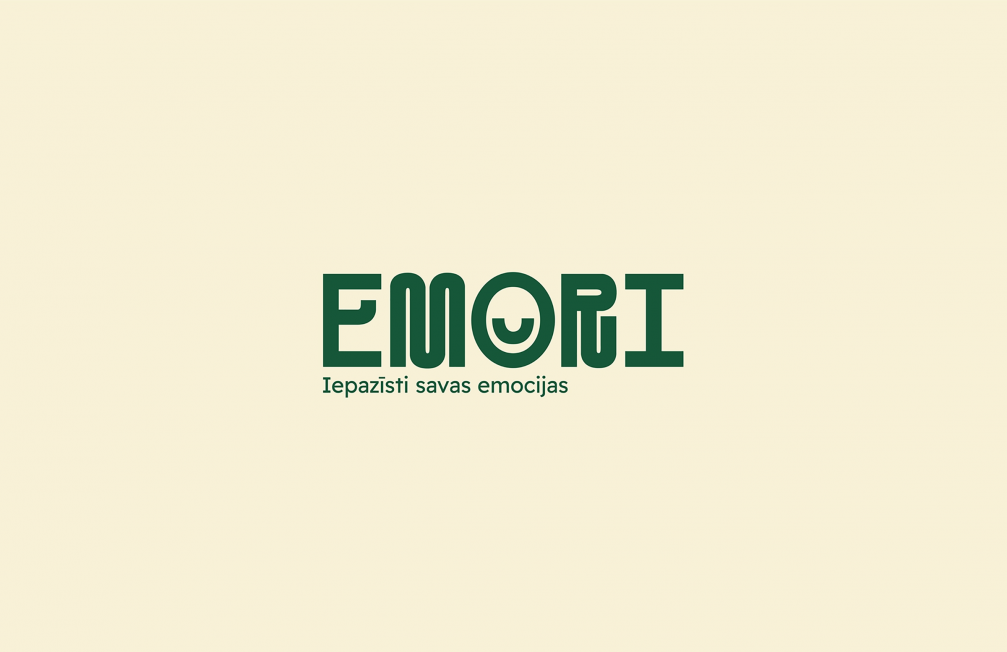
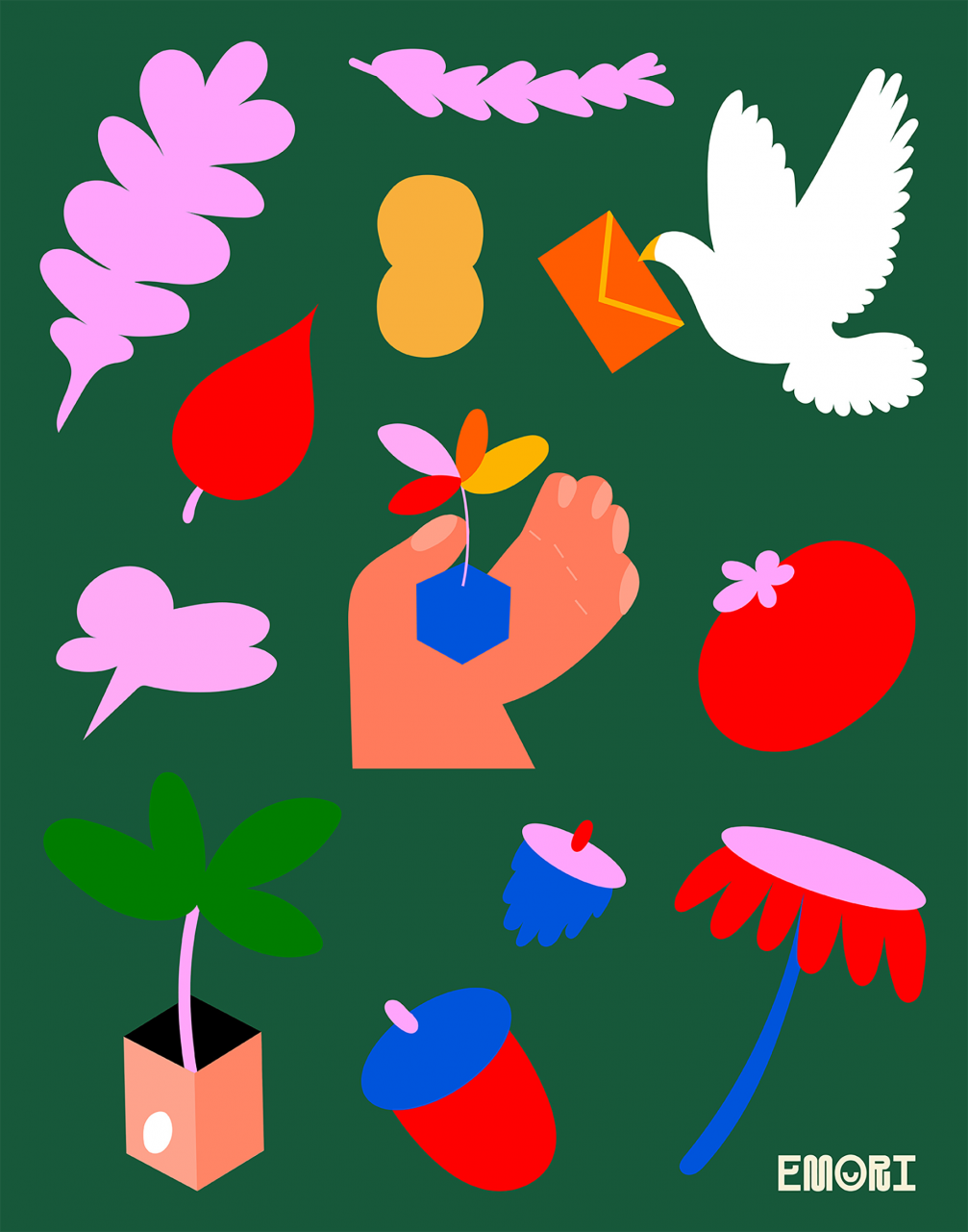
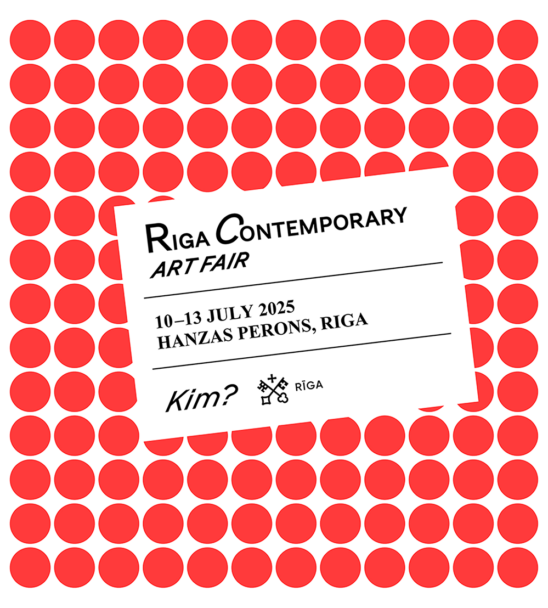
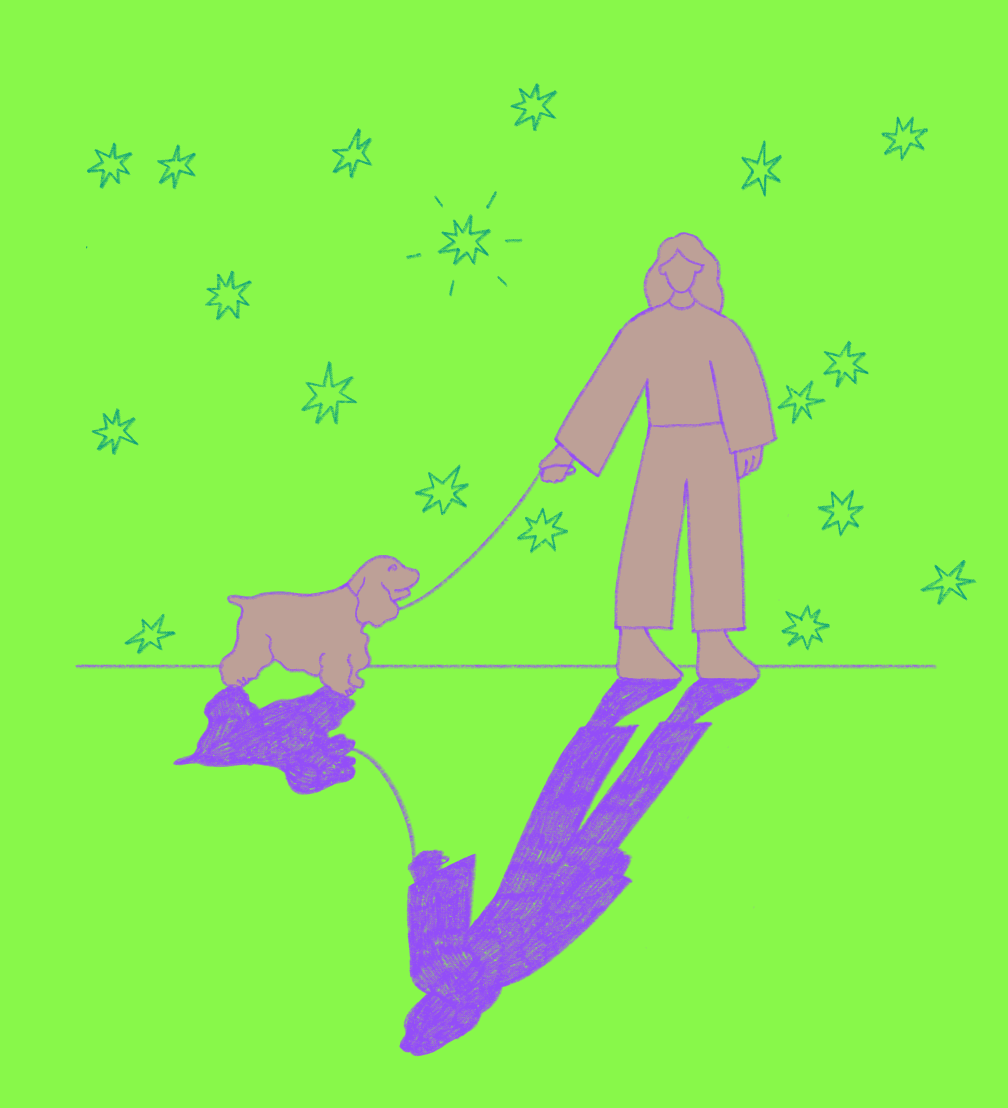
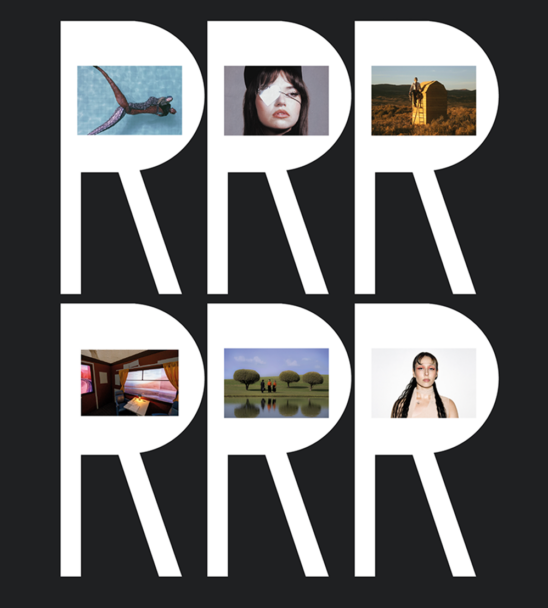
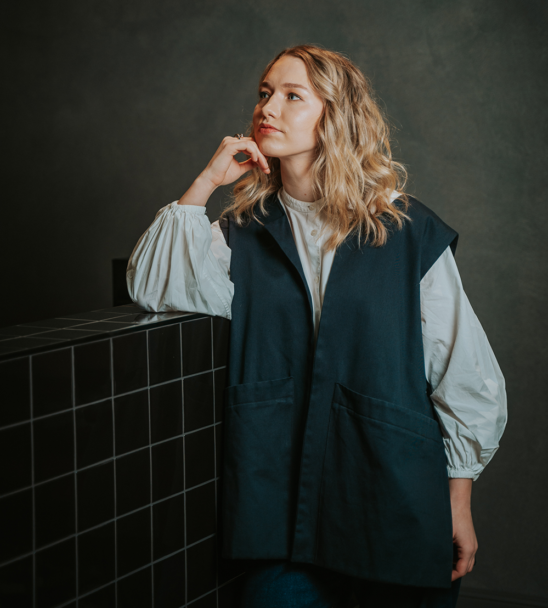
Viedokļi